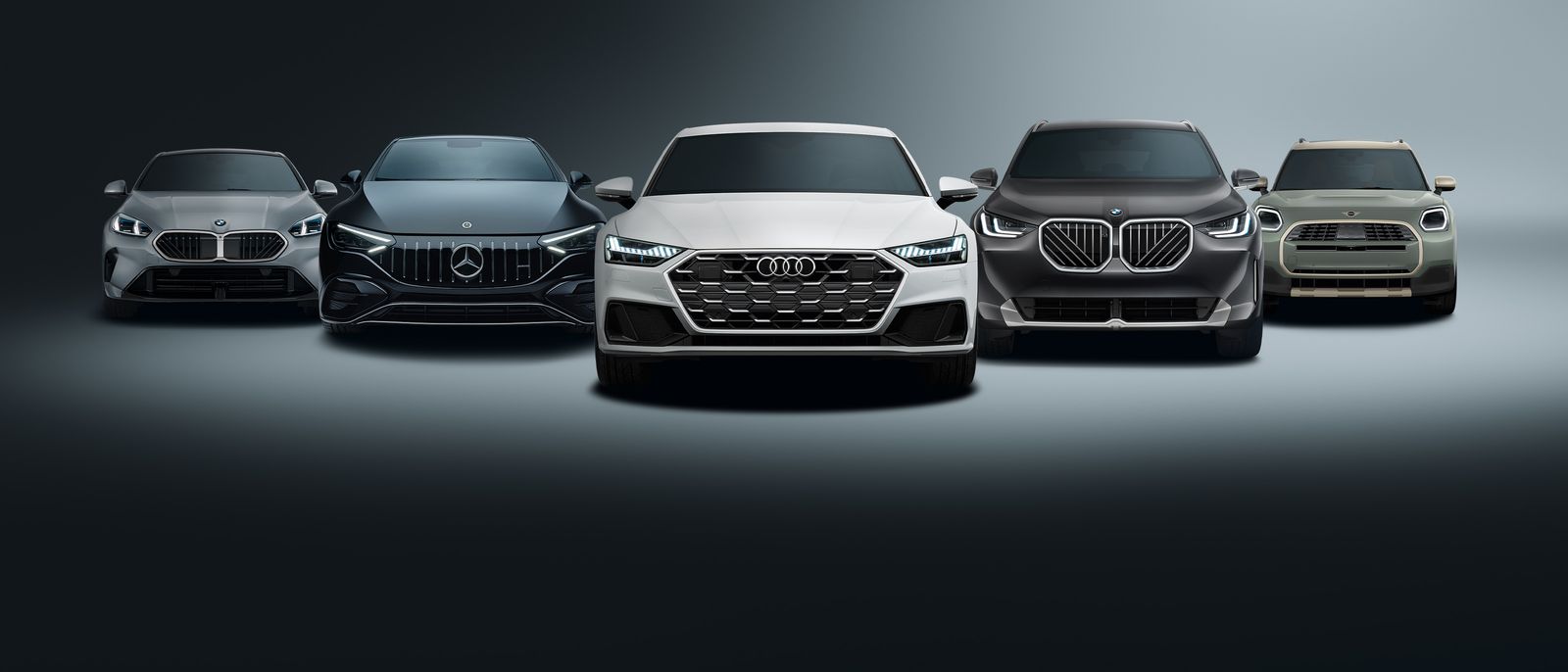Choosing a vehicle for your business isn't just about getting from point A to point B. It's about balancing image, cost, and flexibility. Buying a car can give you long-term stability and the advantage of building equity, while leasing helps reduce upfront costs and keeps your fleet up to date. For some businesses, even newer alternatives like car subscriptions provide maximum flexibility when neither leasing nor buying feels like the perfect fit.

How to decide if buying or leasing is best for you
Choosing between a business vehicle lease or buying one comes down to your company’s budget, usage needs, and tax strategy. Here's a decision matrix you can use to help you choose the best option for your business.
| Decision Criteria | Leasing | Buying |
|---|---|---|
Down payment | Lower upfront cost | Higher upfront investment |
Tax implications | Lease payments often deductible | Eligible for Section 179 deduction (small business tax deduction) |
Mileage needs | Limited by contract | Unlimited |
Flexibility | Easy to switch vehicles | Locked into one asset |
Ownership | No ownership at end | Asset owned, possible resale value |
Tip: Always consult a tax advisor when deciding between leasing and buying. For example, lease payments are generally deductible as business expenses, which can lower your taxable income each year, especially for small businesses. If you buy, you may qualify for a Section 179 deduction, which allows you to write off a large portion (sometimes even the full purchase price) of qualifying vehicles in the year you put them into service. A tax professional can help determine which option gives your business the greater advantage based on vehicle cost, annual mileage, and overall tax situation.
Car leasing: advantages and disadvantages
Leasing vs buying a car for business has its own pros and cons. Leasing allows your business to use a vehicle without committing to ownership. This can be ideal if you want newer models, predictable costs, and minimal maintenance surprises.
Advantages of Leasing
- Lower initial costs compared to buying
- Predictable monthly payments
- Get access to newer models with advanced features
- Lower repair costs under warranty
- Possible full or partial tax deduction on lease payments
Disadvantages of Leasing
- Mileage restrictions and penalties: Leases usually cap annual mileage (often 10,000–15,000 miles). For business owners who log many miles visiting clients or sites, exceeding these limits can mean hefty fees.
- No ownership or equity: At the end of the lease, you return the vehicle with no asset retained, unlike buying, which gives you resale or trade-in value.
- High early termination fees: If your business needs change, for example if you expand your fleet or downsize unexpectedly, ending a lease early can be very costly.
- Higher insurance requirements: Leasing companies often mandate comprehensive coverage or higher liability limits, driving up insurance costs.
- Long and binding contract terms: Lease agreements typically lock you in for two to four years. That lack of flexibility can be a disadvantage if your business needs shift faster than expected.
More flexible alternatives such as a SIXT car subscription or long-term rental can help businesses avoid long-term commitments while keeping costs predictable. To explore other flexible options, you can also read our guide on business car leasing.
Buying a car: advantages and disadvantages
Buying a car for your business means you own the asset outright once the loan is paid off—or immediately, depending on the payment solution you will choose. This option is ideal if your business operates with high mileage or requires long-term fleet stability.
Advantages of buying:
- You'll own the car after payments end
- No mileage restrictions
- You can modify the vehicle for your business needs
- Eligible for significant tax benefits like Section 179 deduction
Disadvantages of Buying:
- Higher upfront or monthly costs: Purchasing requires either a large down payment or, if financed, ongoing monthly loan installments. On top of that, you'll still be responsible for insurance, registration, and regular maintenance.
- Depreciation reduces your resale value: Vehicles lose value quickly, especially in the first few years, which lowers your potential return when it's time to sell or trade in.
- Out-of-warranty repairs can be costly: Once the manufacturer's warranty expires, repair bills — from engine issues to transmission work — fall entirely on your business.
- Capital tied up in the vehicle: Buying means cash that could otherwise be invested into marketing, staffing, or other growth initiatives is locked into a depreciating asset.
How to decide whether leasing or buying works best for your business

Startups or growing teams
If you're a startup with limited cash flow, leasing or subscribing helps minimize upfront expenses while still giving access to the latest vehicle technology. Predictable monthly payments make it easier to budget, and upgrading every few years or months keeps your team driving newer, reliable models.

Seasonal or project-based work
If flexibility is your top priority, a subscription plan is a smart fit for businesses with fluctuating needs, such as a seasonal event company or a project-based consultancy. You can scale your fleet up or down without multi-year commitments, and the all-inclusive pricing (maintenance, registration, etc.) keeps costs transparent.

Fast-growing enterprises
A fast-growing company may benefit from either approach depending on goals: leasing offers scalability and easy upgrades for a growing team, while buying locks in long-term value and control once the fleet size stabilizes a subscription keeps your business fleet flexible.
FAQ: Lease or buy car for business
It depends on your cash flow, usage, and tax strategy. Leasing offers lower upfront costs and frequent upgrades, while buying suits long-term, high-mileage use. Alternatively, you can look into SIXT business mobility solutions.
Small businesses with tight budgets often start with leasing. Established businesses with steady operations may benefit more from ownership.
If you want to deduct large expenses upfront, buying and using the Section 179 deduction might be better. Leasing allows consistent monthly deductions.
Around the company car
Discover SIXT business! Find your perfect company car, rental car for your next business trip, or THE fleet solution for your company.
- German company cars
- Fringe benefits examples
- How to start a delivery service
- 10 Keys to business success
- Company car fleet management
- Most common company cars
- Company car USA
- What is Business Travel
- Business Travel Management
- Save Money on Business Travel
- Sustainable Business Travel
- Bleisure
- Duty of Care
- Travel Expenses
- Business Travel Trends
- Tips on Business Travel
- Best Cities for Business Travelers
- Best Car Rental for Business Travel
- Best apps for business travel
- How to calculate business mileage
- Small Business Tax Deduction
